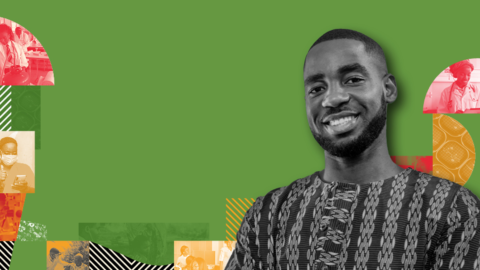By Jacob Opara
 I am a self-confessed political pessimist; I cannot describe myself in these terms in many facets of my life but somehow, I have failed to shade off the tag when it comes to my views on African politics. Now, being a pessimist comes with its own baggage; I am very skeptical of the success rates of political interventions particularly in Africa’s geopolitics. In fact, I am among the few who hold the controversial view that just like money is the root cause of all evil, politics is the greatest enemy of the prospects of African Renaissance. Of course this is a very bold surmise easily dismissible as being too simplistic and/or lacking in-depth understanding of the role of politics in our lives; especially when in mind my greatest frustrations are pointed towards national, regional and continental conventions and summits organized to address ‘pertinent issues affecting African states’. They come in all forms and colours; youth summits, leaders’ summits, Towards Attainment of Africa’s 2063 Agenda, Heads of States conventions, name them.
I am a self-confessed political pessimist; I cannot describe myself in these terms in many facets of my life but somehow, I have failed to shade off the tag when it comes to my views on African politics. Now, being a pessimist comes with its own baggage; I am very skeptical of the success rates of political interventions particularly in Africa’s geopolitics. In fact, I am among the few who hold the controversial view that just like money is the root cause of all evil, politics is the greatest enemy of the prospects of African Renaissance. Of course this is a very bold surmise easily dismissible as being too simplistic and/or lacking in-depth understanding of the role of politics in our lives; especially when in mind my greatest frustrations are pointed towards national, regional and continental conventions and summits organized to address ‘pertinent issues affecting African states’. They come in all forms and colours; youth summits, leaders’ summits, Towards Attainment of Africa’s 2063 Agenda, Heads of States conventions, name them.
Be that as it may, there is a central role that politics asserts in our lives that is both unforgiving and domineering and so we have to find creative ways to meaningfully incorporate it in our lives in a way that is not only relevant but also understandably applicable to our lives. That is the sad fact for pessimists like myself!
I have an example for this. Regional politics in East Africa for the past two decades have been progressing in a very complex manner for the average youth; particularly for those suffering with the same pessimist plight as mine. In a snapshot, East African Integration politics seeks to unify the East African region into one big socio-economic bloc that makes it easier for cross-boarder business, movement, investment and furtherance of good governance policies responsive to the East African countries’ residents. This is a simplistic description of the unification’s call as the exact way in which it is anticipated to be achieved is way more complex than most of us are willing to accept. The complexity does not only regard the required infrastructures, policy formulation and political goodwill but also the wording of the developed legislations and policy frameworks to support it particularly to the ears of the ‘untrained’ youths.
 Cognizant of this challenge, a group of young socio-entrepreneurial enthusiasts from Kenya, Uganda, and Rwanda have come up with a program that seeks to address this complexity in what they are calling East African Debate Championship Series. This program started two years ago, envisioned creating a platform for young people from this region to be heard through written and spoken word through national and regional debate contests organized with the theme of key policy issues affecting the youth. The program brings together Writing Our World (Uganda), iDebate Rwanda (Rwanda) and MGI Consultants (Kenya) as the youth-led organizations spearheading this incredible initiative. First in 2013, a group of 120 students from Uganda and Rwanda engaged in a debate championship tourney both in Kampala and in Kigali discussing the successes of the African Union during its Jubilee Celebrations. In May 2014 this year, the program expanded to include Kenyan students and saw the coming together of over 200 students from Uganda, Kenya and Rwanda at Trinity College Nabingo, for a three-day debate championships where students exchanged their thoughts and insights on East African Integration Cause.
Cognizant of this challenge, a group of young socio-entrepreneurial enthusiasts from Kenya, Uganda, and Rwanda have come up with a program that seeks to address this complexity in what they are calling East African Debate Championship Series. This program started two years ago, envisioned creating a platform for young people from this region to be heard through written and spoken word through national and regional debate contests organized with the theme of key policy issues affecting the youth. The program brings together Writing Our World (Uganda), iDebate Rwanda (Rwanda) and MGI Consultants (Kenya) as the youth-led organizations spearheading this incredible initiative. First in 2013, a group of 120 students from Uganda and Rwanda engaged in a debate championship tourney both in Kampala and in Kigali discussing the successes of the African Union during its Jubilee Celebrations. In May 2014 this year, the program expanded to include Kenyan students and saw the coming together of over 200 students from Uganda, Kenya and Rwanda at Trinity College Nabingo, for a three-day debate championships where students exchanged their thoughts and insights on East African Integration Cause.
 One may miss to grasp the importance of this incredible initiative from its face value unless one considers the impact created thereof. Taking over 300 students largely from marginalized communities across boarders and tailoring complex policy issues in a manner understandable by them and for them to give their feedback on is priceless. Creating a platform where they can interact and learn from each other getting exposed to other cultures and ideals makes the calls for regional integration real and achievable. Tailored as debate motions, complex issues of regional legislation, political formulation, and policy frameworks are discussed and dissected in ways understandable to the youths. This is one initiative that is respectfully creative in its bringing together a coherent youth participation of social causes affecting them.
One may miss to grasp the importance of this incredible initiative from its face value unless one considers the impact created thereof. Taking over 300 students largely from marginalized communities across boarders and tailoring complex policy issues in a manner understandable by them and for them to give their feedback on is priceless. Creating a platform where they can interact and learn from each other getting exposed to other cultures and ideals makes the calls for regional integration real and achievable. Tailored as debate motions, complex issues of regional legislation, political formulation, and policy frameworks are discussed and dissected in ways understandable to the youths. This is one initiative that is respectfully creative in its bringing together a coherent youth participation of social causes affecting them.
———————————————————————————
Sola Fagorusi is a youth development advocate, freelance writer, accomplished debater cum coach. The Obafemi Awolowo University graduate has about 10 years experience in social entrepreneurship which straddles leadership, good governance cum anti-corruption and adolescent reproductive health. The Leap Africa alumnus is also a trained peer educator, a DESPLAY alumnus and co-facilitator. For 2 years now, he has been a technical consultant and lead judge on the Intra-Faith Peace Youth TV Debate Project facilitated by Youngstars Foundation and the British High Commission. To read his full profile, click here.






